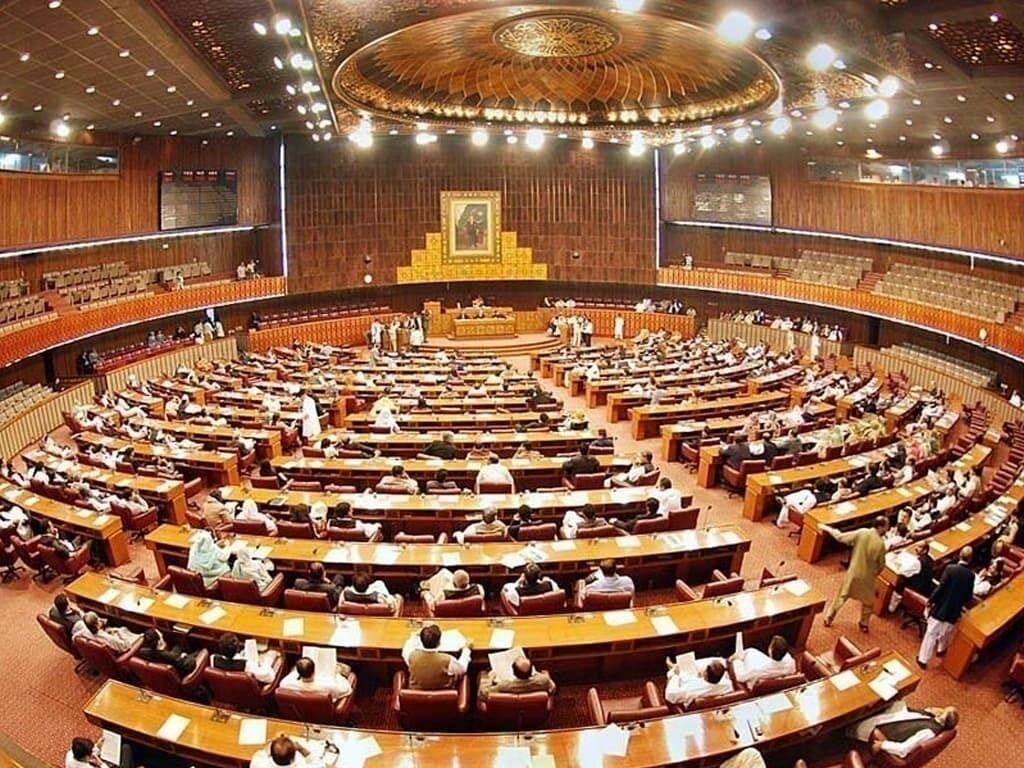- Web Desk
- Feb 19, 2026
56 amendments to revamp Pakistan’s judiciary unveiled
-

- Web Desk
- Sep 16, 2024

ISLAMABAD: Details of the government’s 56 proposed amendments to the constitution, including those aiming to increase the chief justice’s tenure to three years and raise the retirement age for judges to 68, have surfaced.
According to the proposed amendments, the vote of any member who votes against their party’s directives in the assembly will now be counted.
The working paper for the 26th constitutional amendment has been released, detailing the proposed changes. Among the key proposals is the establishment of a “Federal Constitutional Court” parallel to the Supreme Court.
The chief justice of this new court will serve a three-year term, and the retirement age for judges has been set at 68 years.
Furthermore, it has been proposed that the vote of any member who votes against their parliamentary party’s instructions will still be counted.
The working paper also proposes giving the prime minister the authority to appoint the chief justice of both the Supreme Court and the Constitutional Court, based on recommendations from an eight-member National Assembly committee.
The proposed amendments include changes to Article 48 of the Constitution, which would prevent any court, tribunal, or authority from inquiring into advice sent to the president by the cabinet or the prime minister.
Additionally, Article 63 would be amended to ensure that votes cast against party directions are still counted.
Also read: Senate, NA session postponed sine die
The amendments to Article 78 propose the formal establishment of the Federal Constitutional Court. Further amendments to Article 175 outline that the judges of the high courts and Federal Shariat Court will be appointed by a commission, headed by the chief justice of the Federal Constitutional Court. This commission will include the two most senior judges of the Constitutional Court, the chief justice of the Supreme Court, and the two most senior judges of the Supreme Court.
Additionally, the proposed amendments specify that the commission for the appointment of judges to the Federal Constitutional Court will include the law minister, the Attorney General for Pakistan, a senior advocate, and two members each from the National Assembly and Senate.
For the appointment of judges to the Federal Constitutional Court, three additional judges from the Constitutional Court will be included in the commission, instead of the chief justice and judges of the Supreme Court. The chief justice of the Supreme Court will head the commission for the appointment of Supreme Court judges.
For the appointment of Supreme Court judges, five judges from the Supreme Court will be part of the commission, and the chief justice of the Constitutional Court will be appointed based on the recommendations of the National Assembly committee.
According to the proposed working paper, the National Assembly committee will nominate one of the three most senior judges of the Constitutional Court. The name of the judge nominated by the committee will then be forwarded by the prime minister to the president for approval. For the first appointment of judges to the Constitutional Court, the president will consult with the chief justice of the Constitutional Court.
The proposed amendment regarding the appointment of the chief justice of the Constitutional Court specifies that the National Assembly committee will consist of eight members. The appointment of the chief justice of the Supreme Court will also be made on the recommendation of this committee, with the nominee selected from among the three most senior judges of the Supreme Court.
According to the proposed working paper, the committee’s recommendation will be sent to the prime minister, who will advise the president to finalize the appointment.
Additionally, the proposal suggests including two expert judges and recommends using the term “Chief Justice of the Supreme Court” instead of “Chief Justice of Pakistan”.
The working paper further proposes that no foreign citizen could be appointed as a judge of the Supreme Court or the Constitutional Court. Judges of the Constitutional Court will retire at the age of 68, and the tenure for judges, including the chief justices of both the Supreme Court and the Constitutional Court, will be for three years.




